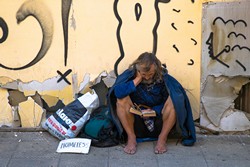Resilience in times of crisis
Over the last decade, the economic crisis has been steadily affecting the livelihood and poverty levels of European citizens, compromising social cohesion and inclusion. Measures to deal with poverty put in place before the crisis have not been adequate, requiring more research into improving the resilience of European communities. The EU-funded RESCUE (Patterns of resilience during socioeconomic crises among households in Europe) project studied resilience in 250 households across Europe. Over a period of three years, it looked at how people were coping in several European countries, namely Finland, Germany, Greece, Ireland, Poland, Portugal, Spain, Turkey and the United Kingdom. This was achieved by gathering data through interviews with ordinary citizens and interviews with stakeholders from charities, NGOs and welfare institutions. RESCUE studied the impacts of the crisis on vulnerable households and identified factors that advance or compromise resilience. It then analysed socioeconomic and cultural practices from different perspectives. The study also involved investigating the role of local welfare state institutions, as well as the social economy and communities, and looked at inequalities based on gender, ethnicity and migration. This enabled the team to document numerous resilience practices, bearing in mind that most vulnerable houses had rarely developed any resilience. In those that did, it found that socioeconomic resilience is linked to how a household mobilises cultural resources, social values and traditional day-to-day survival mechanisms. RESCUE also found that family, friends, neighbours and community are important supporters in dealing with poverty, while personal assets and properties have proven to be pivotal in alleviating hardship. Needless to say, government support in the form of social protection, subsidised housing and civil rights also contributed significantly. Strong resilience was further attributed to smarter use of utilities, reliance on public transport, access to natural resources, and community or society drives such as foodbanks, church initiatives and free education. The project’s findings and results were disseminated through conferences, journals, books and the project website. The outcomes are useful in helping advance the resilience of vulnerable citizens and communities in times of crisis.
Keywords
Resilience, financial crisis, poverty, RESCUE, households, welfare







